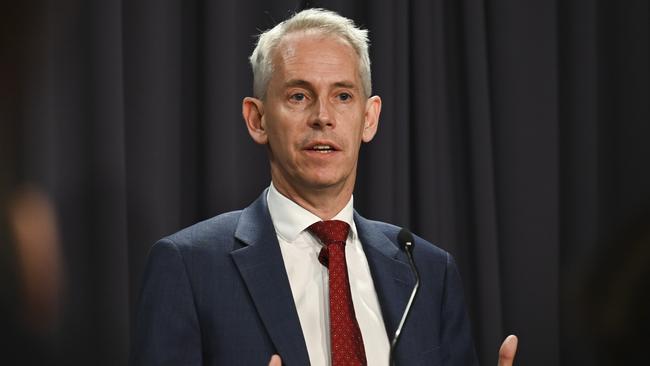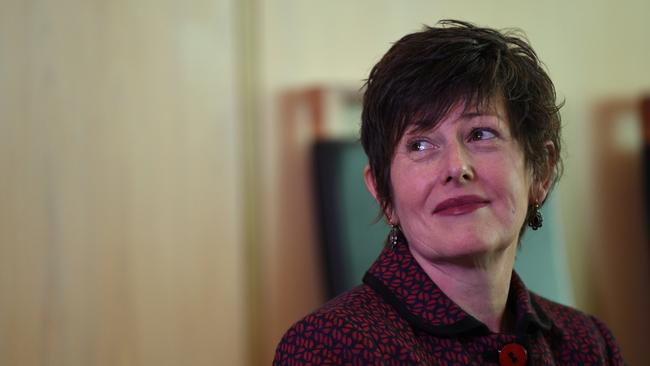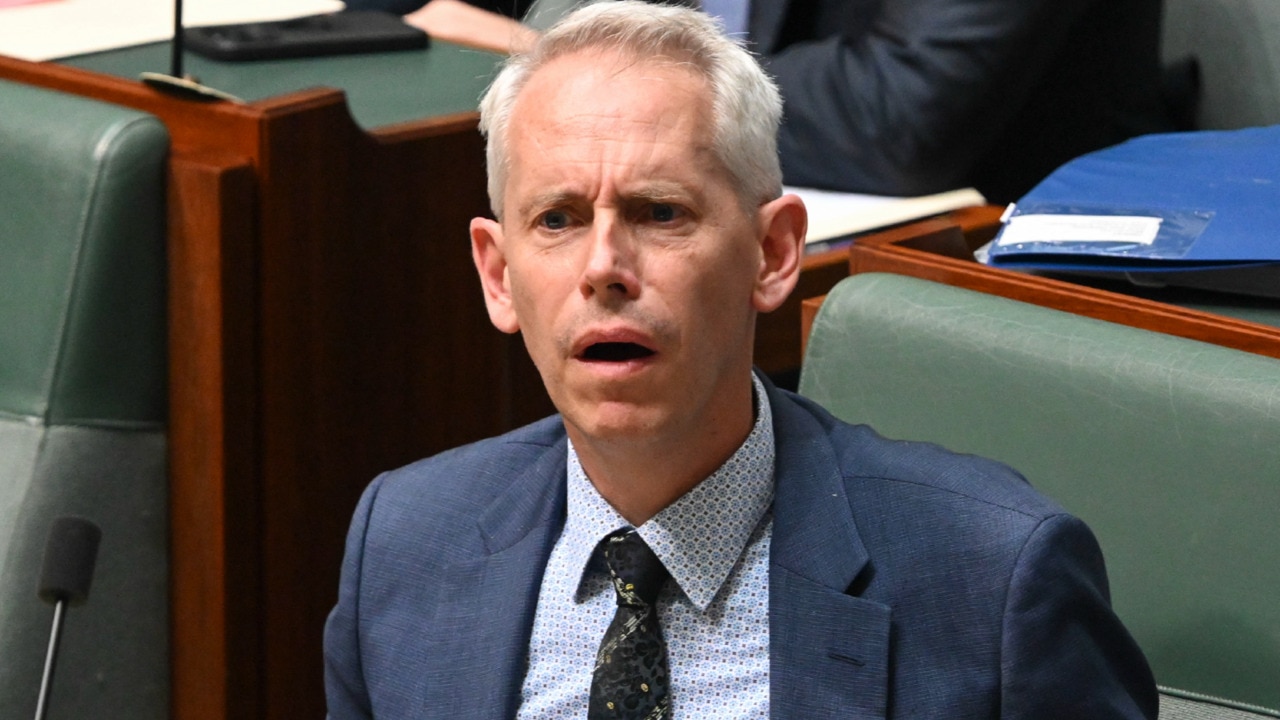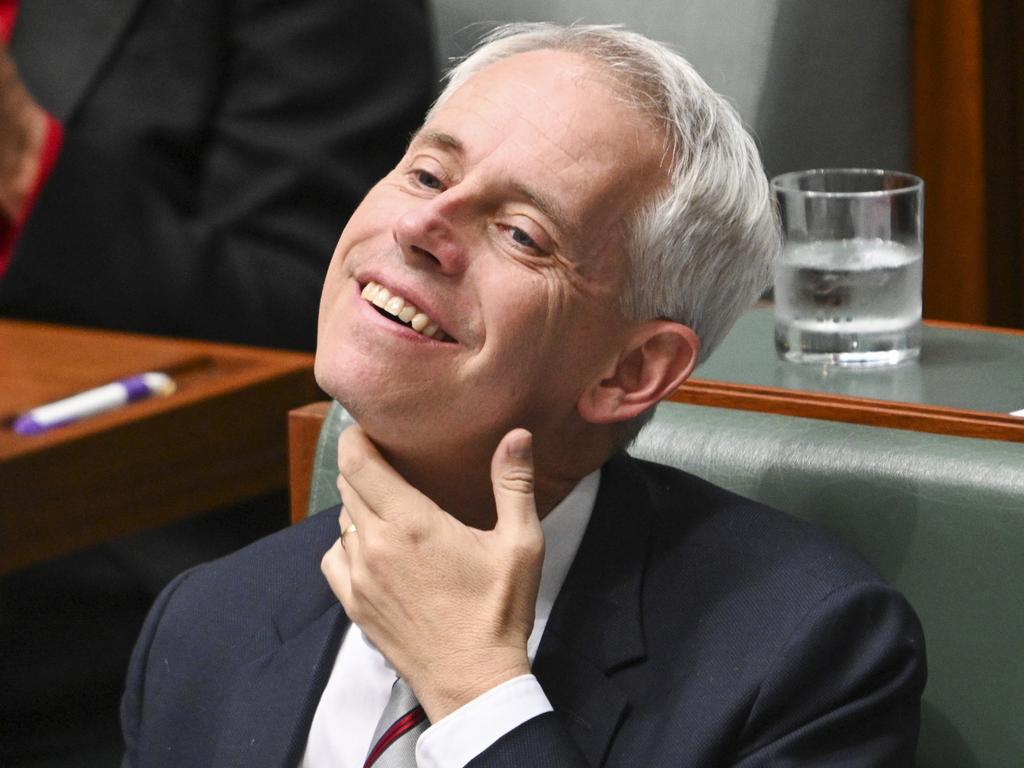Andrew Giles’ ministerial direction allows child rapist to remain in Australia
A child rapist who attacked his stepdaughter while his wife was giving birth was allowed to stay in Australia as a result of a ministerial direction from Andrew Giles.

A child rapist who attacked his stepdaughter while his wife was giving birth was allowed to stay in Australia as a result of Immigration Minister Andrew Giles’ direction giving leniency to foreign-born criminals with ties to the nation, with overseeing tribunal member and ex-Labor speaker Anna Burke saying the direction “clearly states” tolerance for such offenders.
The ministerial direction has also played a role in at least two cases of migrant criminals who were allowed to stay after they claimed they were Aboriginal or accepted as Aboriginal by association to their romantic partners and children.
In all cases, the offenders had failed Australia’s character test and were going to be deported before the Administrative Appeals Tribunal reinstated their visas citing Direction 99.
As Labor and Mr Giles’ political crisis over their lack of control over foreign offenders worsens, The Australian has uncovered dozens of cases in front of the AAT where criminals were able to stay in Australia as a result of Mr Giles’ Direction 99.
Aboriginality is now becoming an excuse for foreign nationals wanting to stay, with one Cambodian-born criminal saying his deportation would split him from his Aboriginal partner and his five stepchildren and therefore “split up an Aboriginal family”. A New Zealander said an elder had certified him as a member of the Yorta Yorta community and he had links to Aboriginal Australia through his two children.
In the child rape case, a New Zealand-born man – referred to as CHCY – kept his visa two months ago despite being found guilty of raping and assaulting his 14-year-old stepdaughter multiple times while his wife was in hospital giving birth to his youngest child.
In her judgment in March, Ms Burke – who was speaker of the House of Representatives under Julia Gillard and Kevin Rudd – said that the man had ties to Australia via his wife, children and parents, and that Direction 99 was a reason behind her decision to stop attempts to cancel his visa.
Ms Burke also acknowledged that while “most in the community would clearly consider CHCY has no right to stay in Australia”, others would support the man – who moved to Australia when he was 16 – remaining under the “notion of a fair go”.
“The tribunal finds CHCY has lived for the majority of his life in Australia, working full time, making a contribution to the taxation system, the community and his family,” the judgment says. “The tribunal places weight on this consideration, noting the direction clearly articulates tolerance should be given to non-citizens in CHCY’s circumstances.
“The strength, nature and duration of ties to the Australian community, and the best interests of minor children in Australia affected by the decision both weigh strongly in favour of granting the visa.”

Mr Giles late last week blamed the AAT for letting a repeat domestic violence offender and alleged killer keep his visa, claiming the tribunal in that instance had misinterpreted his direction.
Ms Burke in her judgment noted that the direction had caveats for the seriousness of offending, and the direction allowed for the weighing of other concerns such as the man’s ties to Australia.
Mr Giles’ Direction 99, introduced in January last year, instructed the AAT to make the strength, nature and duration of an offender’s ties to Australia a “primary consideration” when assessing whether their visas should be cancelled. Previously, such ties were only a secondary consideration behind factors such as the safety and expectations of the Australian community.
The clear attribution to Direction 99 in Ms Burke’s judgment now raises questions about Mr Giles’s claims about the AAT and the wider consequences of his push for more leniency for overseas-born offenders with ties to Australia.
Peter Dutton on Sunday said Mr Giles either did not understand his own direction or was being dishonest.
“There’s no point blaming the AAT. They gave considerable weight to the length of time the criminal had been in Australia, regardless of the seriousness of his crimes – just like Minister Giles ordered,” he said.
“Minister Giles is either incompetent and doesn’t understand what his Direction does, or dishonest and deliberately misleading the Australian public. Either way, he needs to resign or the PM finally needs to sack him.”

A government spokeswoman on Sunday said Direction 99 placed a “significant emphasis on family violence” and that it was the AAT’s decision to overturn the rapist’s visa.
CHCY was convicted of two counts of rape and nine counts of “indecent treatment” and handed multiple prison sentences totalling more than five years, meaning that he failed the character test to remain in the country.
CHCY said his offending was not pre-planned and after the first incident knew what he had done was wrong and “snapped out of it and immediately left”, but went on to offend two more times. His stepdaughter has since moved to the man’s native New Zealand, and the man claimed he did not want to be deported to that country to “spare her” the trauma.
“The tribunal perversely observes it is the victim of CHCY’s offending who has been removed from Australia, the only country she has known and away from her mother, siblings, extended family and friends,” Ms Burke’s judgment says.
CHCY’s wife also wants him to stay in Australia to help raise their other children, and his elderly parents also advocated for his deportation to be cancelled.
The Decision 99 cases include one from October 2023, in which the tribunal reinstated the visa of a Cambodian-born man with an extensive criminal history after he said he had been “adopted by the Noongar community as an Aboriginal Australian man”. The man has no biological children in Australia but said he was stepfather to five Noongar children who “have reached out to the Applicant while he is incarcerated to ask him questions about Noongar law and culture”.
He told the tribunal that he had taken part in Noongar dance and traditions and deporting him would deprive his Aboriginal stepchildren a chance to connect to culture with him and have important Noongar culture, lore and story passed to them.
Another case involved a New Zealand man who was allowed stay because he has two Indigenous children and identifies as Aboriginal. That man’s long criminal history includes theft, burglary, firearms and drug offences, and a violent assault on his pregnant wife after which he took their 10-month-old baby in the car during a police pursuit.
The revelations came as a released immigration detainee who was spared jail last week for six curfew breaches was back behind bars at the weekend for what police say is his seventh. Burundi-born Kimbengere Gosoge, 42, has also been convicted of trespass, possession of amphetamines and stealing in the six months since the High Court released 152 immigration detainees earmarked for deportation.
The Australian has identified eight further AAT decisions that resulted in the cancellation of offenders’ visas being overturned, all of which reference the “strength, nature and duration of ties to Australia”. It brings the total of cancellation decisions being overturned under Direction 99 to at least 36.
Chinese national Jie Zhang was allowed to stay after the AAT found the interests of his children outweighed the benefit of deporting him, after he was convicted of dealing with the proceeds of crime in excess of $100,000.
In another decision handed down last month, the AAT overturned the visa cancellation of New Zealand citizen Uriah Te Ohaere after he was convicted of offences including armed robbery, shop stealing, contravening a family violence order, possessing methamphetamine and committing an offence on bail.
The decision said Te Ohaere had arranged for a pizza delivery to a home to allow him the opportunity to “bail up” the occupant and demand they hand over the food. In another armed robbery case, a Lebanese man, Imad Barghachoun, had his visa reinstated after he was convicted of six counts of armed robbery.






